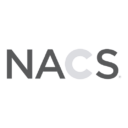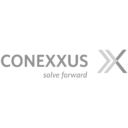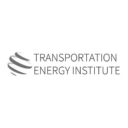
Insights
Why You Need to Take a Deeper Look at Your Fleet Offering

Whether an organization maintains an existing proprietary fleet offering or is evaluating their third-party fleet payment providers, one of the most common barriers that retailers face when attempting to gain incremental market share is that their offering assumes a universal need across the fleet portfolio. The needs of your program will depend on the businesses, and their fleets that you serve (or wish to serve) and the overarching goals of your program. As with most business and consumer facing programs in 2024, success requires near-constant program assessment, benchmarking, and evolution to ensure your program remains cost effective and attractive for your customer, the scope of which spans far beyond payment acceptance.
What is the character of your fleet program?
Overall, the needs of fleet operators for both light duty and heavy duty over-the-road (OTR) programs continue to evolve and expand, and customers expect more and more out of the retailers with whom they engage. Additionally, fleet operators are faced with new options especially in the OTR space. Gabe Olives, Executive Vice President of Energy at Impact 21, a W. Capra company, shared, “Some retailers may assume that accepting common fleet payment card types and monitoring their cost of acceptance means they are offering what they need to offer. By not taking a step back to evaluate where their fleet program stands and what their goals and key performance indicators (KPIs) are, they may not be meeting their fleet consumers’ needs and giving away market share. It is imperative to continually evaluate the fleet/B2B payment landscape to maximize market share as novel solution providers and new product introductions from legacy providers are introduced. An excellent time to ‘go under the hood’ of your fleet program, especially a proprietary program, is when any of your contracts are about a year from renewal. This not only gives you the chance to minimize cost, but also to look at program goals and assess where you are in the market.”
Time and experience matter
As organizations react to macroeconomic headwinds, internal resources are being asked to do more. The added burden of a fleet program evaluation, especially with a potentially limited view of existing programs, alongside a portfolio of implementations and day-to-day responsibilities, almost guarantees a suboptimal result at conducting your own program assessment. Furthermore, some retailers may be tasked with running fleet programs that they inherited as part of their role. “One of the strongest advantages we offer to our clients is the ability to add a third-party perspective that spans the fuel, travel center, convenience, food, and specialty industries. We bring deep, cross-functional experience that assists and guides our clients in maximizing their opportunities to gain market share and drive financial results,” Olives added.
W. Capra and Impact 21 offer a vast array of services to their clients as it relates to their fleet programs, including overall program assessments (including cost of acceptance evaluation); a deep dive into store reporting, accounting, and reconciliation processes; roadmap planning and execution; sales strategy and overall advisory services. Additionally, W. Capra and Impact 21 can provide services to enhance the ability for retailers to capture wallet share of the professional drivers: Fuel the vehicle, Feed the Driver. Olives concluded, “Making sure that you have defined KPIs and are evaluating things like number of program applications and approvals, cost of acceptance, and program retention, have now become table stakes; add that to evaluating future requirements and emerging complexities like reimbursement of employees for electricity and you have more difficult path than ever.”
As the demand for alternative fuels and electrification expands, it is paramount that retailers adjust their forecourt product slate, payment infrastructure, and reporting obligations to maximize their position as a reliable source to their fleet customers.
Gabe Olives loves to lead the charge with his team’s expertise for W. Capra and Impact 21 clients in all things related to their fleet and OTR payment programs. For further discussion, contact Gabe at golives@impact21.com.
Related Insights
How to Prepare for Payments Industry Acquisitions
With the recent news that Global Payments will be acquiring Worldpay from FIS and divesting its issuer solutions back to […]
The Cost of Poor Quality Assurance for Point-of-Sale and Back Office Systems in Petroleum Retail
Quality Assurance (QA) is vital to ensure that those who use the tool daily can replicate basic functions AND access the advanced technology and process automation they were promised during sales demos.
Navigating the Future of Electric Vehicles Amidst Administrative Change
As we bid farewell to 2024 and welcome 2025, the future of the electric vehicle (EV) market in the US […]
The Changing Role of the CIO
It used to be that a retailer’s chief information officer would spend most of his or her time concerned with […]
Want to stay in touch? Subscribe to the Newsletter











